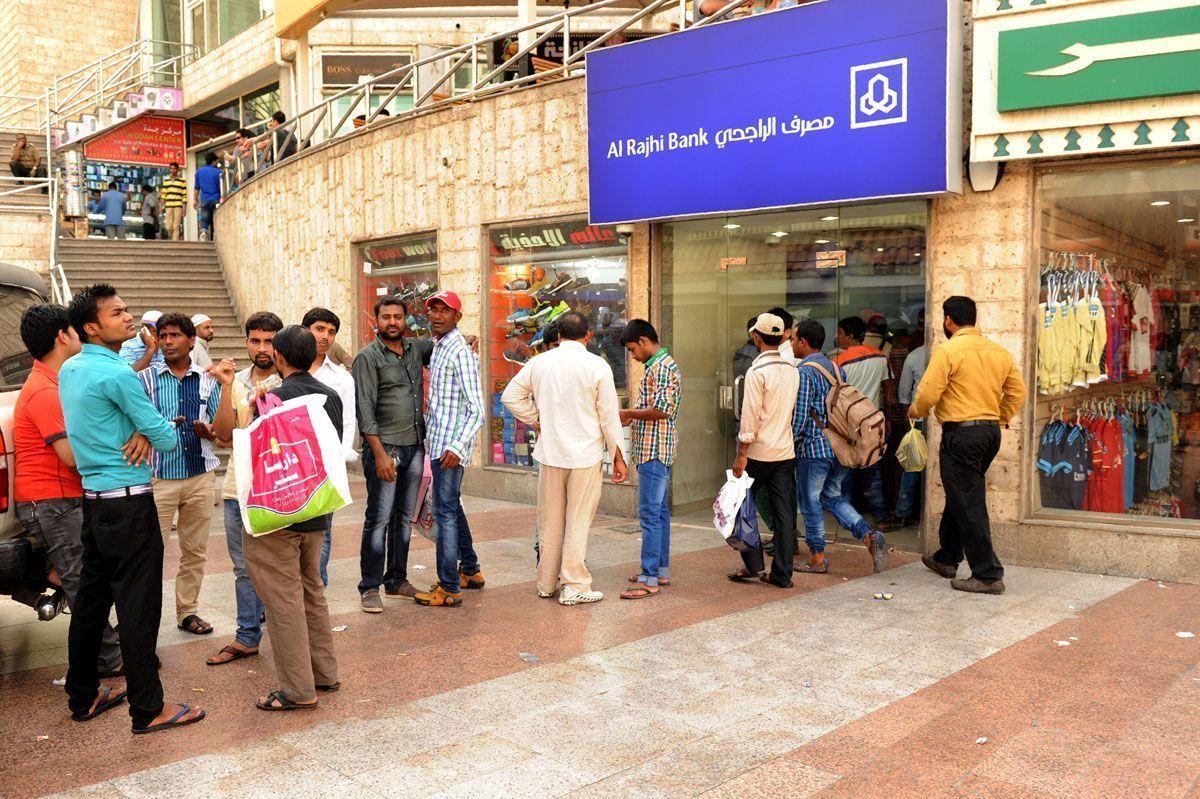The new Saudi labour law – which the kingdom will tout it as a reform that marks it as an enlightened, humane leader – excludes the most vulnerable groups of migrant workers, including domestic workers, says a new report from ImpACT International for Human Rights Policies.
There are an estimate of 13 million migrants who work in Saudi Arabia and were recruited by agents in India (the largest contributor, at 4 million), Pakistan, Kenya, Bangladesh, Yemen and Ethiopia.
The new Saudi labour law
ImpACT says that although these migrants sign contracts promising acceptable wages, once they arrive, they are often paid only half of what was promised.
Women, for example, are often paid a paltry wage of 1,000 riyals (266 USD) a month or less, making it almost impossible to send much home after they pay their own expenses, and, sometimes, women are not paid at all, the rights group said.
“Lack of pay is not the only restriction on migrants’ financial rights and freedoms,” ImpACT said.
Under the infamous kafala sponsorship system, which according to ImpACT enables blatant human rights violations by giving their employers almost total power, a sponsor request is required before migrants can open a bank account or take out a loan.
“Saudi Arabia is a nation built by modern-day slaves, and this law won’t substantially change that,” says Sudeshna Dey, researcher with ImpACT in India.
“The government has honed a system of labourer exploitation so entrenched that it continues to pervade every fiber of society.”
ImpACT said Saudi banks classify migrant bank accounts as “high risk,” and thus impose a number of conditions:
- Banks require an official request from the employer, including the nature of the migrant’s work, the purpose of the account, the wage paid and the sources of any other income. The migrant’s work permit and passport must also be submitted.
- Once the account is opened, the migrant is issued an ATM card only; personal checks and credit card are not allowed.
- If migrants want to leave the country permanently, the banks immediately freeze their accounts and require the money to be withdrawn.
The group documented a testimony of an Indian worker. The 33-year-old Isher told ImpACT: “I have six siblings who live with my parents in India. I came to Saudi Arabia mainly to send them money to cover their expenses. But when I came here, I was surprised that I could not open a bank account without the permission and help of my employer”.
“I currently do not have an account, simply because he does not want to help me open one.”
ImpACT researcher Dey says that “This concentration of power in the hands of an employer opens the door to abuse and exploitation—a form of slavery”.
“The International Labour Organisation has issued many reports on wages, rights and working conditions but its recommendations have not been implemented.”
All types of foreign workers have a right to fair, timely wages; independent bank accounts; and the ability to borrow money if they have sufficient financial resources ImpACT indicated.
Without these rights, migrants cannot achieve the financial health for which they traveled, ImpACT added.
“International human rights organizations, including national and local bodies in Saudi Arabia and the countries that send migrants to the kingdom, must come together to demand an end to a discriminatory and archaic system of governance that allows systemic abuse of migrants,” researcher Dey said.
Keep reading: ImpACT Calls UN To Blacklist UAE Investments In Israeli Settlements























































